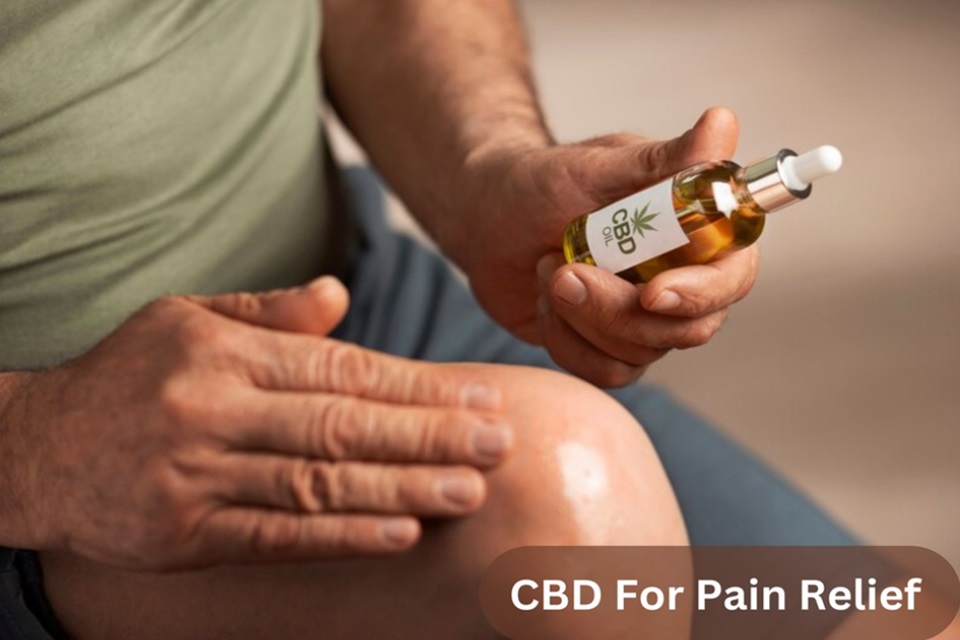CBD For Pain Relief: Easing Muscular Discomfort
As people seek natural alternatives for pain relief, cannabidiol (CBD) has gained attention for its potential benefits in alleviating muscular discomfort. Whether it’s from exercise, injury, or everyday strain, many individuals turn to CBD as a holistic approach to managing pain. In this article, we’ll explore how CBD can help address muscular discomfort and its potential as a natural pain reliever.
Understanding Muscular Discomfort
Muscular discomfort can arise from various factors, including strenuous exercise, overexertion, repetitive motions, or underlying health conditions. This discomfort often manifests as soreness, stiffness, tension, or inflammation in the affected muscles, limiting mobility and causing discomfort.
The Role Of CBD In Pain Relief
CBD, a cannabinoid derived from the cannabis plant, interacts with the body’s endocannabinoid system (ECS), which regulates various physiological functions, including pain perception. CBD’s interaction with ECS receptors can modulate pain signals, reduce inflammation, and promote relaxation, offering potential relief from muscular discomfort.
Benefits Of CBD For Muscular Discomfort:
- Pain Relief: CBD’s analgesic properties may help reduce pain sensations associated with muscular discomfort, providing relief without the adverse side effects often associated with conventional pain medications.
- Anti-Inflammatory Effects: CBD exhibits anti-inflammatory properties, which can help reduce inflammation and swelling in affected muscles, easing discomfort and promoting faster recovery from injuries or overexertion.
- Muscle Relaxation: CBD’s muscle-relaxant properties may help alleviate tension and stiffness in sore muscles, promoting relaxation and restoring mobility.
- Improved Sleep: Muscular discomfort can interfere with sleep quality. CBD’s calming effects may promote better sleep by reducing pain and promoting relaxation, allowing for more restful sleep and enhanced recovery.
Using CBD For Muscular Discomfort
CBD products come in various forms, including oils, creams, balms, and topical solutions, making it easy to incorporate into your pain relief regimen. Topical CBD products can be directly applied to the affected area for targeted relief, while oral CBD supplements may provide systemic effects for overall pain management.
It’s essential to choose high-quality CBD products from reputable brands and follow recommended dosages. Consulting with a healthcare professional can help determine the appropriate CBD dosage and usage method based on individual needs and preferences.
Conclusion
CBD offers promising potential as a natural remedy for alleviating muscular discomfort. Its analgesic, anti-inflammatory, and muscle-relaxant properties make it a valuable option for individuals seeking holistic pain relief. By incorporating CBD into their wellness routine, many people can experience relief from muscular discomfort and enjoy improved quality of life without relying on conventional pain medications. However, further research is needed to fully understand CBD’s efficacy and safety for pain management.
FAQs
Is CBD legal for relieving muscular discomfort?
In many regions, CBD derived from hemp containing less than 0.3% THC is legal for therapeutic use, including pain relief. However, regulations vary by location, so it’s essential to check local laws regarding CBD usage.
How does CBD work to alleviate muscular discomfort?
CBD interacts with the body’s endocannabinoid system, which regulates pain perception, inflammation, and other functions. By modulating these processes, CBD may help reduce pain and inflammation associated with muscular discomfort.
Are there any side effects of using CBD for muscular discomfort?
While CBD is generally well-tolerated, some individuals may experience side effects such as dry mouth, drowsiness, or changes in appetite. It’s essential to start with low doses and monitor for any adverse reactions.
What is the best way to use CBD for muscular discomfort?
The optimal method of CBD consumption depends on individual preferences and the severity of discomfort. Topical CBD products can be applied directly to the affected area for targeted relief, while oral CBD supplements offer systemic effects for overall pain management. Experimenting with different forms and dosages can help determine the most effective approach.





